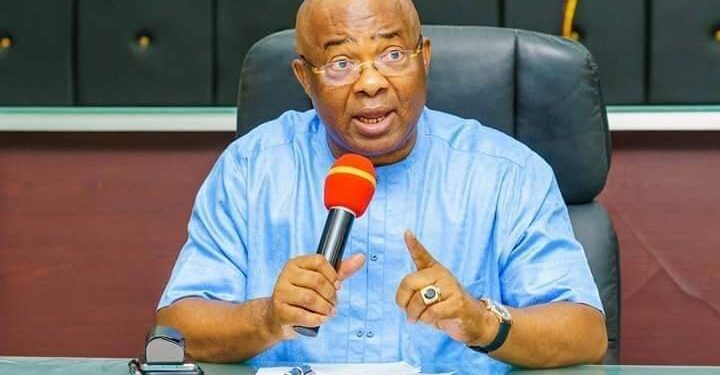Imo State civil servants will receive a significant salary boost following Governor Hope Uzodimma’s announcement of a new ₦104,000 minimum wage, representing a ₦28,000 increase from the previous ₦76,000 baseline salary.
The wage adjustment was revealed during a Tuesday night meeting between the governor and labor union representatives at the Government House in Owerri, where Uzodimma outlined comprehensive salary improvements across various employment categories within the state’s public sector.
Beyond the general minimum wage increase, specialized professional categories received substantial upward adjustments. Medical doctors saw their minimum compensation rise from ₦215,000 to ₦503,000, while tertiary institution teachers received increases from ₦119,000 to ₦222,000.
Uzodimma justified the wage increases by citing improved state finances and the need to address economic hardship facing workers. He emphasized that enhanced compensation would boost productivity, improve family welfare, and stimulate local economic activity.
“When workers are paid well, productivity rises, families are happier, and the local economy grows. This is our way of investing in Imo people,” the governor stated during the announcement.
The governor detailed significant improvements in the state’s fiscal position since his administration began in 2020. Internal revenue generation has expanded dramatically from ₦400 million to over ₦3 billion monthly, while federal allocations increased from ₦5-₦7 billion to approximately ₦14 billion.
Debt reduction represents another area of fiscal improvement, with the state’s obligations declining from ₦280 billion in 2020 to less than ₦100 billion currently. These financial improvements provided the foundation for the wage enhancement program.
Uzodimma acknowledged various challenges his administration has navigated, including security concerns, the COVID-19 pandemic, fuel subsidy removal, and labor disputes. He emphasized that maintaining positive relationships with organized labor remains essential for effective governance.
The governor defended the federal government’s fuel subsidy removal policy, arguing that despite short-term hardship, the measure would generate long-term benefits. He characterized the policy as a “bold decision” by President Bola Tinubu that is beginning to show positive results.
“It is a thing of joy that we have started seeing the dividends of that bold decision of President Bola Tinubu to remove fuel subsidy. What government is confronted with now is how to ensure that the dividends of that policy trickle down to the common man on the street,” Uzodimma explained.
Additional worker benefits announced include the commencement of ₦16 billion in outstanding pension payments beginning August 27. The governor indicated that this represents the final batch of gratuities owed to retired civil servants.
Healthcare improvements were also highlighted, with the introduction of a health insurance scheme and upgrades to medical facilities. The state has aligned with federal initiatives to establish 1,000 businesses in each active INEC ward as part of broader economic development efforts.
Labor union leadership praised the wage increases as transformative for state employees. Nigeria Labour Congress state Chairman Uchechigemezu Nwigwe characterized the announcement as a “major win for Imo workers.”
“Today, no worker in Imo will say you have not been fair to us. You rescued us from economic challenges and placed Imo among the highest-paying states in Nigeria,” Nwigwe told the governor, promising reciprocal dedication from the workforce.
Trade Union Congress Chairman Uchenna Ibe similarly commended what he described as the governor’s “strong political will” in implementing wage increases and broader reforms. The union leadership’s positive response suggests the changes address longstanding worker concerns.
The governor used the occasion to encourage labor unity with government objectives while urging workers to maintain ethical standards and productivity. He emphasized that transparency in resource allocation would be crucial for sustaining the reforms.
Imo State’s wage increases occur within the broader context of Nigerian states grappling with inflation, currency devaluation, and demands for improved worker compensation. The substantial increases position Imo among states offering competitive public sector salaries.
The timing coincides with ongoing national discussions about minimum wage adjustments and the economic impact of recent policy changes including fuel subsidy removal. Uzodimma’s approach demonstrates how improved revenue generation can enable states to provide worker relief while maintaining fiscal responsibility.



















